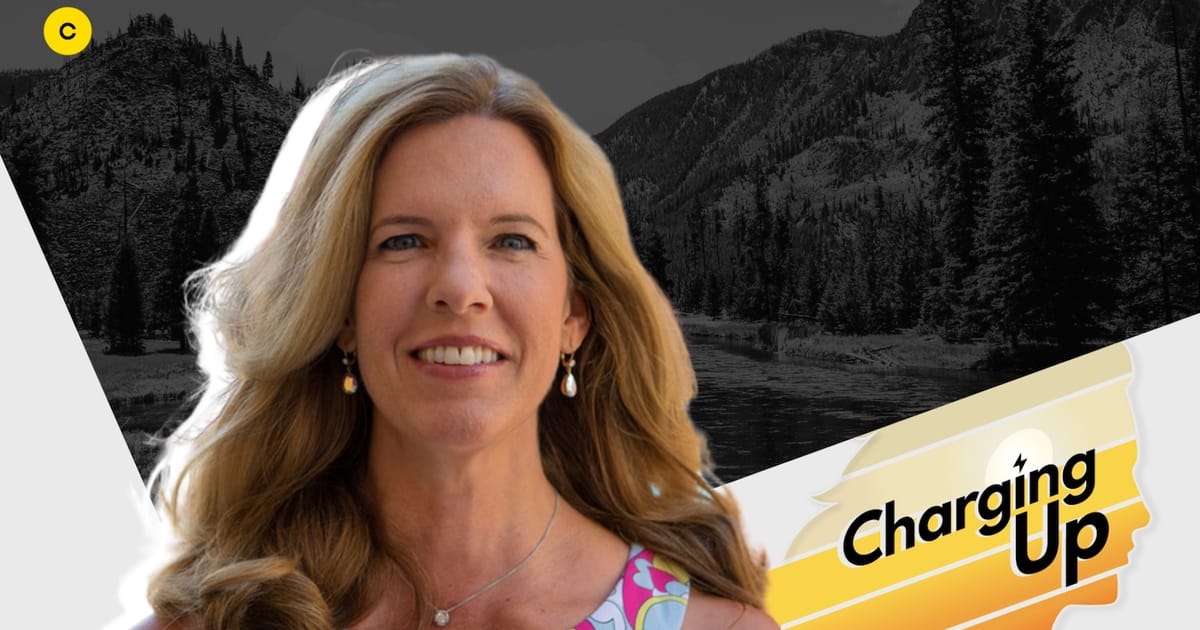Charging Up: A chat with Amy Francetic, managing…


Canary Media’s Charging Up column chronicles gender diversity in the climatetech sector. Part one is a short Q&A with an industry role model about their career path. Part two features updates on career transitions. Please send feedback and tips to [email protected]canarymedia.com.
Amy Francetic: An investor with an eye for talent
Amy Francetic is co-founder and managing general partner at Buoyant Ventures. This interview has been edited and condensed for brevity.
Subscribe to receive Canary’s latest news
How did you end up on this career path?
Earlier in my career, I was an entrepreneur in the consumer technology space. I built and sold a company with a group of folks and had a lot of fun doing that, which turned my attention to investing. After I had my kids and took a bit of time off, I wanted to go back to work and do something that was personal and meaningful. To me, that was climate work. I’ve always been an avid outdoors person and a runner. I wanted to do what I could to address the climate crisis and source solutions with my skills as a business person that would have a meaningful impact before it’s too late.
I have been in the climate space for almost 18 years now. I built an organization called the Clean Energy Trust, which is now called Evergreen Climate Innovations. I also started a venture fund with Michael Polsky called Energize Ventures, and in early 2020, I started Buoyant Ventures, which is where I am now. This is my fourth startup.
What’s the best piece of advice you’ve ever received?
When I was a first-time CEO, a mentor told me, “You have to make people want you to be successful.” To me, that means a number of things: One is that you have to convince people to come along with you; you have to have a vision that people want to commit to. But also, you have to do it in a way that makes people root for your success. You need to mobilize a lot of support to be successful.
Subscribe to receive Canary’s latest news
What is a barrier you faced, and how did you overcome it?
Early on, being a nontechnical person working in a technical company, I had a lot of doubts about whether I could lead a group of engineers, and then once I moved into climate, I was relatively intimidated by how much there is to learn — I didn’t have the benefit of training. Right now, we have a great internship program with a number of leading universities, and they have very specific content around climate and energy policy and environmental science, but that was not the case for me.
I had to learn all this on the job, and there were definitely moments where I felt like I didn’t have the capacity to sit down with scientists and understand their battery chemistry, for example. I found myself googling terms and teaching myself a lot, and it took me years to be confident and develop some domain expertise to feel like I could interact with scientists and PhDs.
What do you think are some interesting, overlooked career opportunities in climatetech?
At Buoyant, we invest in digital climate solutions, so we’re looking for software and hardware companies that can address climate change mitigation. One of the areas where we can never hire enough is in data science. A lot of our companies are data-driven, so, for example, they are using hardware to collect unique data and then using software to analyze the data and drive some kind of insights or actions for customers. Data science is very teachable, so if you’re looking to do something that is more core to the company, I think getting some experience in data science, or taking some classes if you’re still in school, is so valuable and so needed at all levels.
The other area I will mention is sales. All high-growth companies need salespeople, and if you are hungry and working on a sales team, you can get great experience that you can build on and go into product or grow within sales itself. So knowing how to work with customers is a great skill, and every company needs that. It is a great entry point.
What advice would you give people looking for a career in climatetech?
I get approached by a lot of young people trying to make the transition into climate either just out of school or from another industry. It’s so important when you reach out to people in that way to have a specific ask and show a level of sophistication in your thinking — so for example, instead of asking me to “tell you about climatetech,” maybe you ask me, “how do you think I can translate these skills I have from the healthcare industry into the climate space?”





